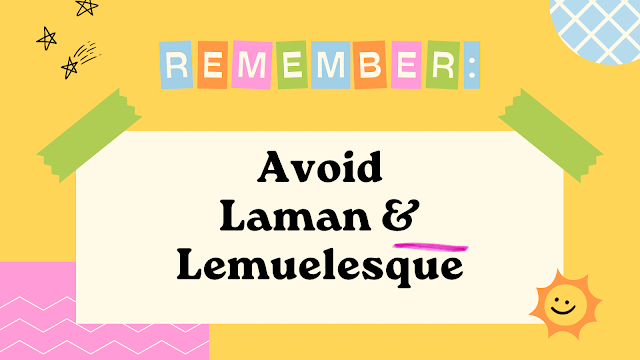It seemed to me that when I did my calling(s) well, I got persecuted. I couldn't figure out why. Why would anyone resent me doing my calling(s) and especially why would they resent me doing it well? Isn't that what I should do? Isn't that what they wanted me to do? Isn't that what Heavenly Father would have me do?
I didn't find or receive any answer to my dilemma until I finally moved out of that ward. Then, I found it, in the Book of Mormon of all places. In 2 Nephi 1:25:
... ye have accused him that he sought power and authority over you; but I know that he hath not sought for power nor authority over you, but he hath sought the glory of God, and your own eternal welfare.
Lehi was telling Laman and Lemuel that Nephi was just being righteous and he wasn't trying to usurp them or elevate himself over them in any way. He cared about their welfare.
Power and Authority
Power and authority are not the same thing. In fact, I think one of the compelling things about the authenticity of the Book of Mormon is that I don't think Joseph Smith really knew or appreciated the difference between the two concepts, at least not with his age and experience at that time.
power: the capacity or ability to direct or influence the behavior of others or the course of events.
authority: the right to govern or rule or determine for a specific purpose within specified limits.
They often occur together but you can have one without the other. If you have a specific position, like Bishop of a ward, you have specific authority. However, you could still be powerless if you can't seem to influence behavior or events.
On the flip side, the Bishop's wife has no authority, but that doesn't mean she doesn't wield power and influence behavior or events.
Nephi was accused of trying to assume both.
What Could I or Nephi Do?
Nephi was just being righteous and doing what he should. Laman and Lemuel viewed it as Nephi angling for power and authority over them. They didn't like him usurping what they thought was their authority and rightful place.
It was a no-win situation for Nephi. The only thing that would have satisfied Laman and Lemuel was unrighteousness or inaction. For Nephi, that obviously wasn't an option.
I believe my doing my calling was viewed as my angling for power. It's the only thing that makes sense. Everything was interpreted as either a power play or a turf battle.
No one in that ward seemed to have the idea that someone truly wanted to do their best to serve in the kingdom. No one seemed to believe that anyone would want to serve God and help people.
Did not compute ...
Sadly, I think this is becoming more common.
Conclusion
People are becoming more and more dysfunctional and units are becoming more and more dysfunctional.
What this means, in reality, is that we spend a lot of time tip-toeing around people trying to influence them in the right ways but without tripping any circuits that would result in pushback from them.
It's horribly time-consuming, inefficient, and ineffective.
It also isn't Christlike.
Continue reading at the original source →




